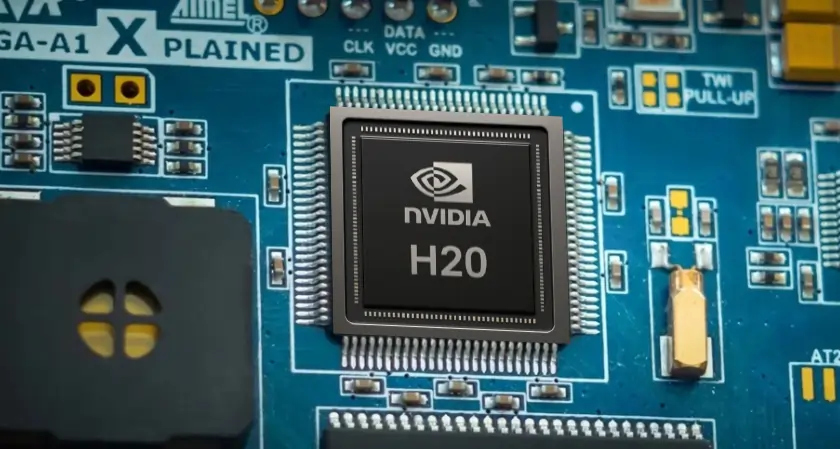Due to security concerns, Beijing is urging state and private companies to steer clear of Nvidia's H20 processors, strengthening its push for domestic semiconductor solutions.
China has warned local businesses against using Nvidia Corp.'s H20 chips, particularly for operations involving the government. This action complicates the chipmaker’s efforts to recoup billions in lost revenue from China and threatens the Trump administration’s ambitions to transform those sales into a windfall for the US taxpayer.
The use of simpler chips has been discouraged by letters sent by Chinese officials to a number of enterprises in recent weeks. According to Bloomberg News, which cited sources familiar with the issue, the notification prohibited state firms and private corporations from using H20 chips for any government or national security-related activities.
Some of these letters included questions like why they selected Nvidia H20 processors over local alternatives, if they had found any security flaws in Nvidia technology, and whether this selection was required given domestic alternatives.
At the moment, China's most stringent semiconductor regulations are restricted to sensitive applications, much as it has banned Apple Inc. iPhones and Tesla Inc. cars from specific locations and institutions owing to security concerns. Additionally, the usage of Micron Technology Inc. processors in vital infrastructure was originally forbidden by the Chinese government.
Compared to Nvidia's top offerings, the H20 processor has less processing power, but its large memory bandwidth makes it perfect for AI inference jobs, where models find patterns and draw conclusions. Because of this, it has become appealing to Chinese corporations like Tencent Holdings Ltd. and Alibaba Group Holdings Ltd., particularly as local chip manufacturer Huawei Technologies Co. struggles to produce enough cutting-edge components to meet market demand.
However, China has two major issues here. First, despite Nvidia's adamant denials, Chinese officials are concerned that Nvidia processors may include remote shutdown and location-tracking capabilities. Trump administration officials are currently looking into the possibility of using location tracking to stop the alleged smuggling of banned components into China. Legislators have also put up laws requiring powerful AI chips to verify their whereabouts.
Second, Beijing is pushing Chinese enterprises to switch from Western chips to local ones and is making the development of its own chip sector a top priority.



































